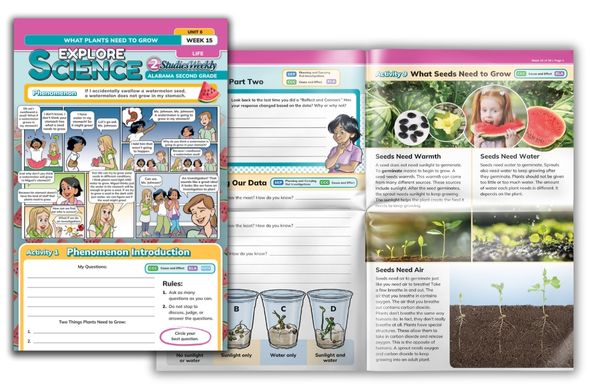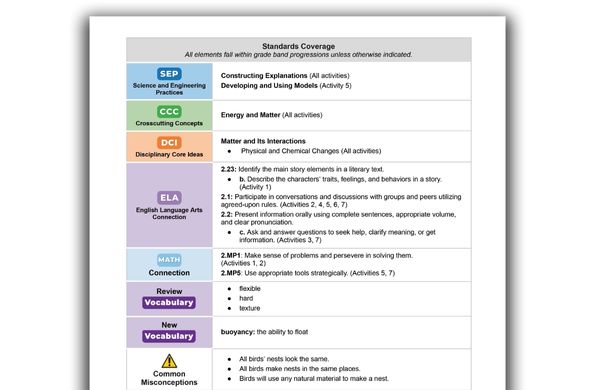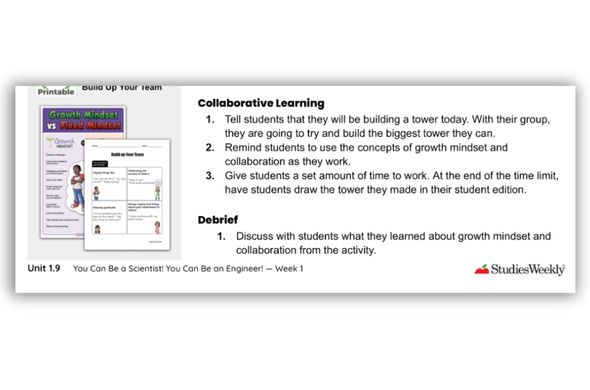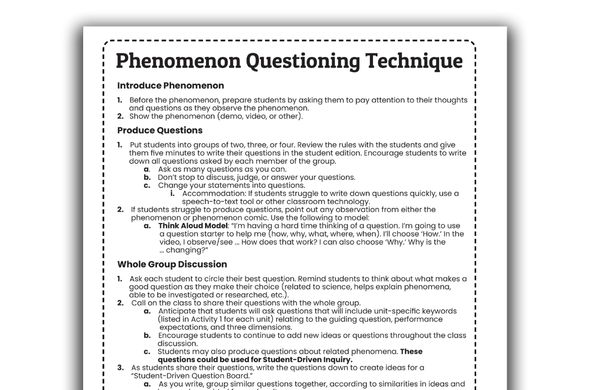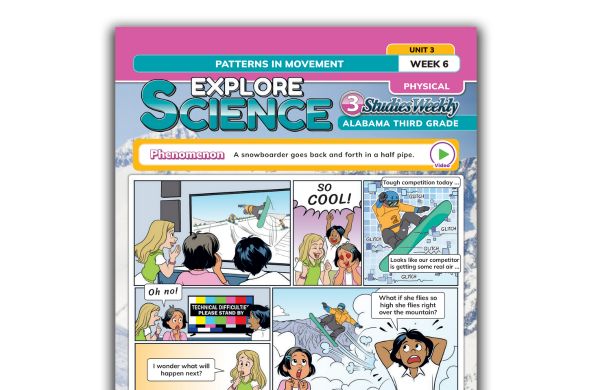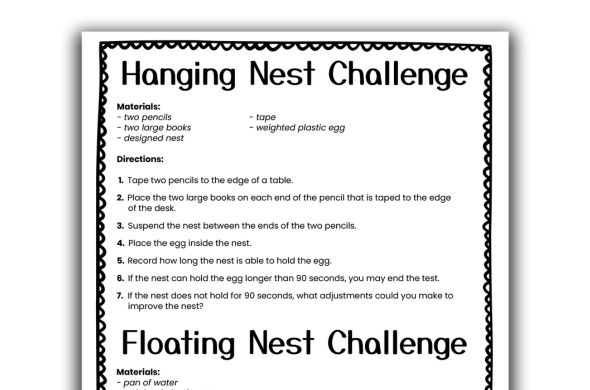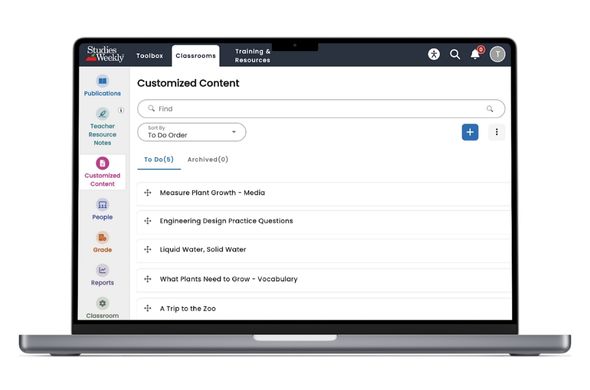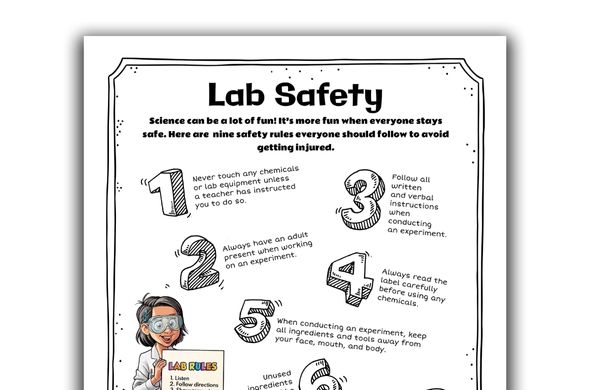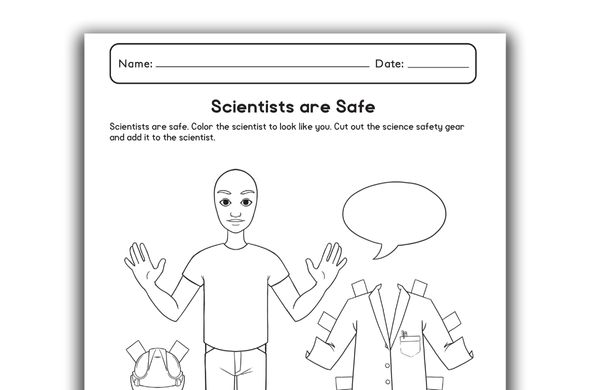
How Studies Weekly’s K-5 Alabama Science Hits Every Standard
Science speaks to students better than almost any other subject. Science can ignite a unique and lasting curiosity, wonder, and thrill of learning when teachers are empowered with high-quality instructional materials.
That’s why Studies Weekly created Alabama Explore Science for grades K–5. Built to align with the 2023 Alabama Course of Study: Science, Explore Science gives educators the tools they need to boost discovery and exploration, all while covering 100% of the standards.
The 2023 Alabama Course of Study contains six guiding positioning statements to outline the goals and desired outcomes for students to become scientifically literate citizens who can evaluate the quality of scientific information, appreciate science as a way of knowing about the world, and make evidence-based decisions.
Studies Weekly brings each of these positioning statements to life through research-backed content, thoughtful instructional design, and quality student and teacher resources.
Position Statement 1
“Science classrooms in Alabama must create opportunities for students to develop scientific literacy.”
According to the Course of Study, “A scientifically literate person understands what science is and how to use it to make decisions and take actions in everyday life.”
Scientific literacy is the ability to find reliable scientific information, judge its credibility, understand core concepts, and apply them in everyday contexts.
Studies Weekly helps students develop scientific literacy through active engagement in research and engineering and multi-modal learning. Students read, write, speak, and listen to gather, analyze, and communicate scientific ideas. The Course of Study outlines the positive relationship between general literacy instruction and the development of scientific literacy. Improving general literacy through science instruction also fosters scientific literacy.
According to the Course of Study, “All students, K-12, are expected to use developmentally appropriate literacy skills in the science classroom, such as reading scientific texts; writing observations and data, journaling, composing reports or essays; and communicating their ideas using current technology for presentations and discussions.”
Studies Weekly meets this expectation by introducing and explaining phenomena through grade-level chunked text with scientific vocabulary and integrated Disciplinary Core Ideas, Scientific and Engineering Principles, Crosscutting Concepts, and ELA and Math standards.
Because Studies Weekly is a consumable program, students are able to record observations and data directly on their Student Editions. In the sample lesson pictured above (Fig. 1), students learn to plan an investigation by recording their questions, procedures, relevant data, and hypotheses in their personal newspapers. Students also have many opportunities to work with partners, in small groups, and together as a class to communicate their ideas and learn from each other.
Position Statement 2
“Students must develop an understanding of the nature of science in order to become scientifically literate.”
The Alabama Course of Study outlines several foundational core principles of science. While concepts build on each other and expand in complexity throughout a child’s education, these core principles remain constant and must be explicitly addressed through instruction and reflective discussions.
Studies Weekly addresses these Nature of Science (NOS) core principles alongside the three dimensions outlined in the Next Generation Science Standards: Disciplinary Core Ideas (DCI), Science and Engineering Practices (SEP), and Crosscutting Concepts (CCC).
The Studies Weekly Teacher Editions highlight coverage of NOS, DCI, SEP, and CCC elements for every unit of instruction (Fig. 2) so teachers can feel confident that their Studies Weekly materials are hitting their standards.
Position Statement 3
“All students should have opportunities to learn scientific information through inquiry and experience, using their individual funds of knowledge to enhance classroom instruction.”
Science is best taught, understood, and advanced not in a vacuum, but in collaboration and connection with a global science community. Every individual brings their own perspective and a unique personal fund of knowledge. Written in the Alabama Course of Study, “Valuing students’ individual funds of knowledge enhances teaching and learning in the science classroom. Educators should actively encourage students to share their science-related experiences in positive ways to promote sharing and collaboration in learning.”
Studies Weekly includes many collaborative learning activities to encourage students to problem-solve together and draw from their individual knowledge in group settings. Teamwork allows students to share their ideas, perspectives, and knowledge, strengthening the classroom community and helping students learn from each other.
This sample lesson selection (Fig. 3) highlights a collaborative learning activity in which students use their prior knowledge and group critical thinking to build a tall tower.
Studies Weekly encourages students to draw upon their individual knowledge, unique ideas, and personal perspectives through Guiding Questions and Phenomenon Questioning Techniques. After phenomena are introduced, students are instructed to ask as many questions as they can, drawing on their prior knowledge and what ideas come into their minds (Fig. 4). Not every student will think of the same questions, so sharing them with the class helps all students to learn from one another as they hear each other’s ideas.
Additionally, the phenomena introduced in the Student Editions are purposefully designed to be relevant and familiar to students’ lives, maximizing their engagement and interest in learning. For example, in Grade 3 Week 6 (Fig. 5), students are introduced to movement and patterns through an engaging story about snowboarding.
Position Statement 4
“Providing differentiated instruction in the science classroom is essential for meeting the diverse needs of all students.”
Differentiated instruction is an important practice to support student equity and success. To accommodate the needs of all learners, Studies Weekly Online equips teachers with resources to differentiate instruction at the group and student levels. The online platform contains accessibility supports, including a variable-speed, human-recorded audio reader, ADHD-focused reading panels, and other content adjustment options for individual student needs. The Teacher Edition also contains suggestions for differentiation and optional extension activities (Fig. 6) for each lesson, allowing teachers the flexibility to differentiate instruction without taking extra prep time.
Within the online platform, teachers can customize online articles, activities, quizzes, assessments, and more according to their teaching styles and students’ needs. Customized content can be assigned to individual students or to the whole class, allowing teachers more control over the online learning experience (Fig. 7).
Position Statement 5
“High-quality teaching and learning in science require a collaborative classroom environment, an instructional design that promotes exploration, a variety of assessments, and opportunities to make cross-curricular connections.”
Studies Weekly’s Alabama Explore Science promotes hands-on, inquiry-based exploration in every unit of instruction — exploration is in the name! Students drive learning with their own questions, observations, and hypotheses. With opportunities to work independently or together, students learn to problem-solve and let curiosity and critical thinking drive their exploration.
The Alabama Course of Study designates criteria for scientific instructional design, including:
- Identifying the outcome from the standards
- Determining acceptable evidence of student learning
- Developing engaging activities and learning experiences based on the desired outcome
The Studies Weekly lesson plans in the Teacher Edition fill these criteria by delineating lesson objectives and basing activities on multiple research-based instructional models, including phenomenon-based instruction and the 5E model.
The Teacher Edition also includes printable and online formative and summative assessments, including unit assessments, reading comprehension assessments, and performance tasks (Fig. 8), to give students opportunities to show what they know and can do. Teachers can also easily access and monitor student performance through the online platform to identify opportunities for intervention and differentiation.
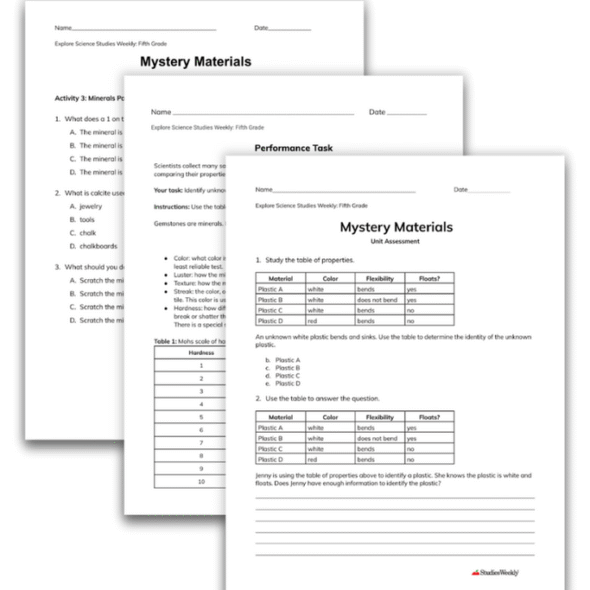
Because making cross-curricular connections strengthens learning and enhances comprehension, Studies Weekly integrates Math and ELA standards within its science curriculum. Students develop reading and writing skills by engaging with scientific texts, identifying evidence, making observations, and explaining their reasoning. Students also learn math skills by gathering, analyzing, and visualizing data. Because science impacts so many areas of life, Alabama Explore Science can be easily integrated into other disciplines to make teaching science more flexible for teachers and more comprehensive and holistic for students.
Position Statement 6
“In science classrooms and laboratories, safety must be prioritized to minimize risk in hands-on environments.”
To help keep our teachers and young scientists safe, Studies Weekly’s Alabama Science curriculum emphasizes classroom safety practices before students begin experimenting. Lab safety lessons and activities help students recognize the importance of practicing care and responsibility in the science classroom.
In this grade 1 activity, students learn nine safety rules they should always follow when practicing science (Fig. 9).
In this activity, students learn the important role of lab safety gear in keeping them safe and protected (Fig. 10).
Studies Weekly’s Alabama Explore Science is built for the future of science instruction and the complete and effective implementation of the 2023 Alabama Course of Study. The curriculum empowers students to use their prior knowledge, connections to the greater world around them, and natural curiosity to drive forward their learning and work together to learn the wonders of science.
K–5 Alabama Science
Encourage students to investigate through hands-on learning
